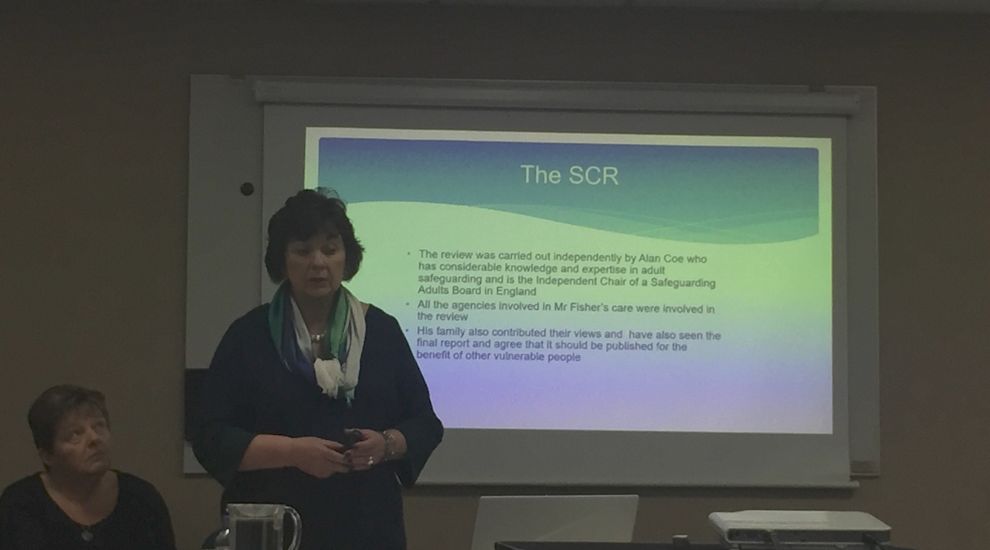

Community authorities are strengthening their support services following the death of a “vulnerable” man in his 70s who lived alone and was once discharged from hospital in just his pyjamas.
Mr Fisher*, who was described as “something of a local character” and known for dressing distinctively, died alone at home and was not found until some time later.
While he was believed to have a mild learning disability, this was undiagnosed, and he continued to live independently.
However, concerns were raised about his health and “unkempt” living conditions in the later years of his life, with Mr Fisher rejecting offers of formal assistance on numerous occasions.
Following Mr Fisher’s passing, a Serious Case Review (SCR) was conducted, “…not to apportion blame but to ensure that lessons are learned and improve the way adults are safeguarded,” according to Glenys Johnston OBE, Independent Chair of the Safeguarding Adults Partnership Board.
In a briefing today attended by representatives from the Hospital, Honorary Police, and Community and Social Services, Mrs Johnston explained that, “…people who decline our help can be very challenging for us” and expressed regret that community authorities could not do more to support Mr Fisher, despite “so desperately” wanting to help.
She described how Mr Fisher was known to have numerous health conditions, but had emphatically declined a Hospital consultant’s recommendation to live in supported accommodation.
He had briefly accepted assistance from an agency, but that he had made it clear that they were “not welcome.” After concluding that, “…he wasn’t a constant source of concern”, the agency ceased their services after a year.
“People don’t accept help for all sorts of reasons, from pride, perhaps they’re depressed or feeling rather low, perhaps they’re confused about what’s going on…perhaps they don’t want people to see the state of their home,” she said.
While Mr Fisher had falsely claimed that he had no next of kin to rely on, he received significant support from other members of the community – including neighbours, a local shopkeeper and his curator, who were praised in the review and by Mr Fisher’s family.
Pictured: Representatives from the Community and Social Services, Honorary Police and Hospital attended the SCR briefing chaired by Glenys Johnston OBE (left to right).
Speaking after the briefing, Chris Dunn, Director of Adult Services in Community and Social Services, told Express that, while Mr Fisher’s case was “sad”, it was important to maintain respect for his wishes.
“The issue of dignity and respect are the key values that underpin everything that we do. From a community and social services perspective, those are paramount to everything we do. That gets balanced with this notion of capacity.
“We work really hard to try and encourage people to engage with us and we work really hard to try and help those people who might be living alternative lifestyles to consider the impact of their personal respect and dignity. The respect issue is also where we have to reach a point where we have to respect what the individual may be telling us,” he explained.
“An important factor here is that there are a number of people who might be deemed as having a mild learning disability who live very successful lives in the community… In this case, the duty social worker would have undertaken a capacity assessment in the course of their duty and determined that the individual did have capacity to make a decision that said, ‘No thank you, I don’t want your services.’”
Following the report, a number of recommendations have been made, including a review of the Hospital’s laundry policy and steps taken to “raise public awareness” – measures welcomed by Mr Fisher’s family.
Alongside these suggestions, Mr Dunn says that action is already being taken.
“In line with other SCRs, things that have changed include doing some work with our colleagues in the Police around the welfare notifications they raise. We have strengthened the link between our front door and the Police to make sure that we’re responding together quickly and immediately to any concerns that are raised.
“We’ve introduced the self-neglect policy and we’ve established within our safeguarding framework that we automatically respond to any self-neglect. And then we’ve looked to introduce the new capacity and self-determination legislation.”
*Name changed to protect anonymity.
Comments
Comments on this story express the views of the commentator only, not Bailiwick Publishing. We are unable to guarantee the accuracy of any of those comments.